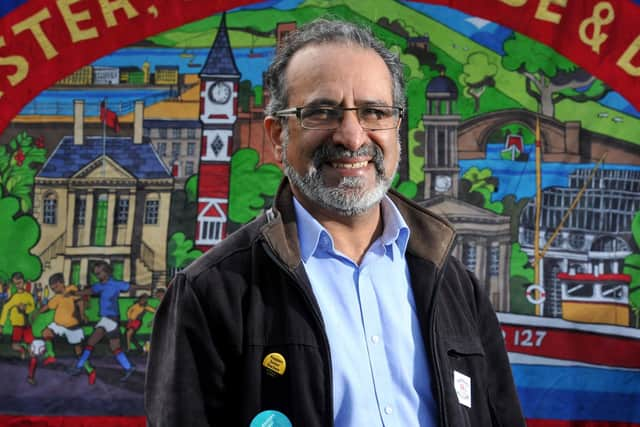Teachers in Lancaster and Morecambe 'disgusted' by government's 'insulting' 4.5% pay rise offer
and live on Freeview channel 276
After days of intensive negotiation, the education unions ASCL, NAHT, NASUWT and NEU were presented with a pay offer by the Education Secretary which amounts to a £1,000 one-off cash payment for the present school year (2022/23) and a 4.5% consolidated average pay rise for teachers for next year (2023/24).
While an additional 0.5% funding would be provided, the rest would come from funding previously provided to schools - with NEU analysis suggesting that between two in five and three in five would have to make cuts in staffing and other resources to afford it.
Advertisement
Hide AdAdvertisement
Hide AdThe NEU is putting the offer to its members, recommending rejection, with a ballot closing on Sunday April 2.


Sam Ud-din, district secretary for the NEU in Lancaster and Morecambe, said that within minutes of the announcement in an online meeting - attended by more than 20,000 teachers - he was inundated with messages of disgust from local members at the government's offer, and everyone was wanting to make it clear that they wanted to reject it.
"We are now gearing up for further strike action at the end of April and start of May - and much more will be discussed at our upcoming conference in Harrogate next week," he said.
Commenting on the pay offer, Dr Mary Bousted and Kevin Courtney, joint general secretaries of the National Education Union, said:
Advertisement
Hide AdAdvertisement
Hide Ad“This is an insulting offer from a Government which simply does not value teachers.


“This offer is less than teachers in Scotland and Wales have been offered. It does nothing to address the long-term decline in teacher pay and therefore does nothing to solve the problems in teacher recruitment and retention.
"Each year the Government’s own teacher training targets are routinely missed and a third of teachers leave within five years of qualifying. 13% of those who qualified in 2019 have quit. The Government seems content for this to continue.
“Not only is the offer on pay entirely out of step with the rest of the UK, it is also not fully funded.
Advertisement
Hide AdAdvertisement
Hide Ad"NEU analysis shows that between 42% and 58% of schools would have to make cuts to afford staff pay rises.
"Schools will continue to be stretched financially, and it is students who will suffer. Staffing and services will be squeezed in order to comply.
"This is not a sustainable situation and we stated so throughout our campaign and during negotiations.
“It is now crystal clear that we have an Education Secretary and a Government that is ignoring the crisis in our schools and colleges.
Advertisement
Hide AdAdvertisement
Hide Ad"By refusing to address the legitimate and reasonable request to bring to an end more than a decade of below-inflation unfunded teacher pay increases, the Government is driving teaching and recruitment retention in schools in England to breaking point.
“No child benefits from this level of underfunding. Investing in the education of this generation of children and young people, those hit so hard by Covid, is essential to economic recovery.
"To sit by and allow so many talented teachers to leave for reasons which are entirely fixable, should be a point of shame for this Government."
